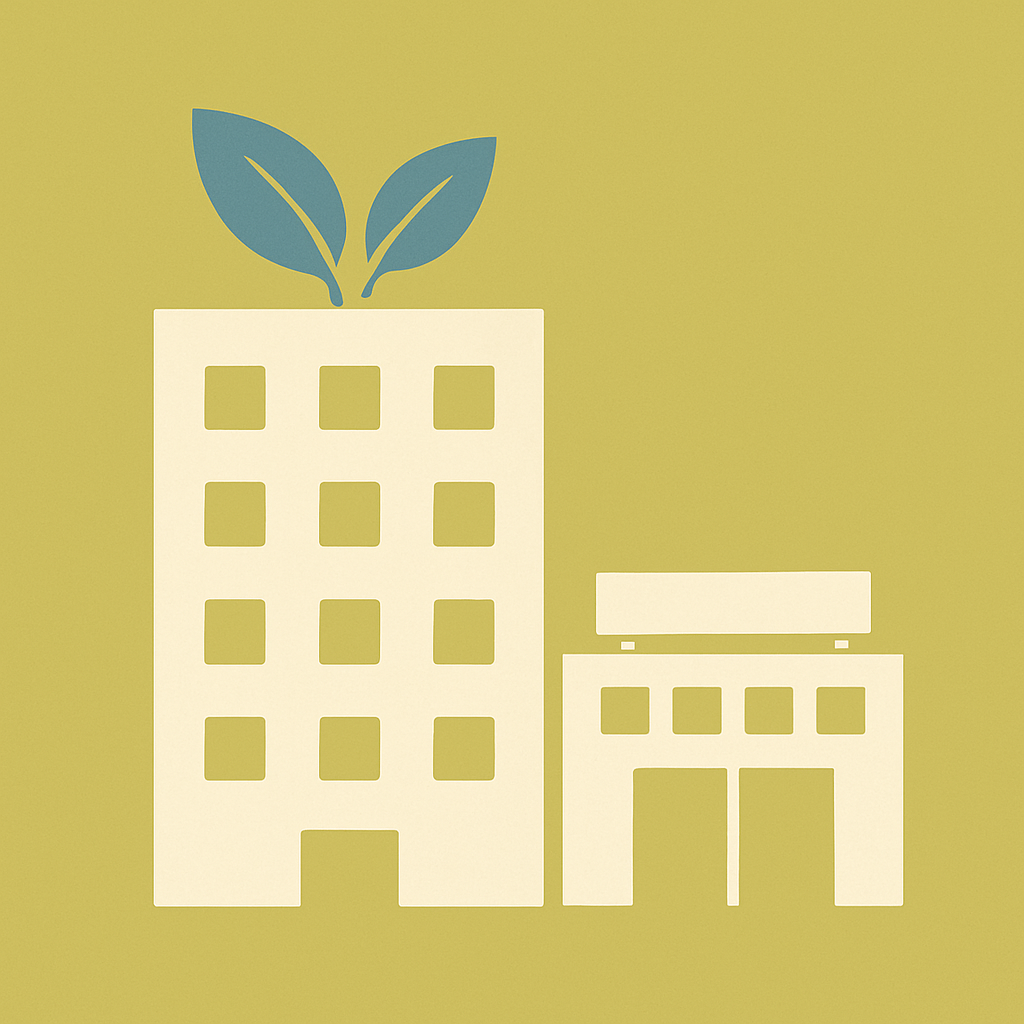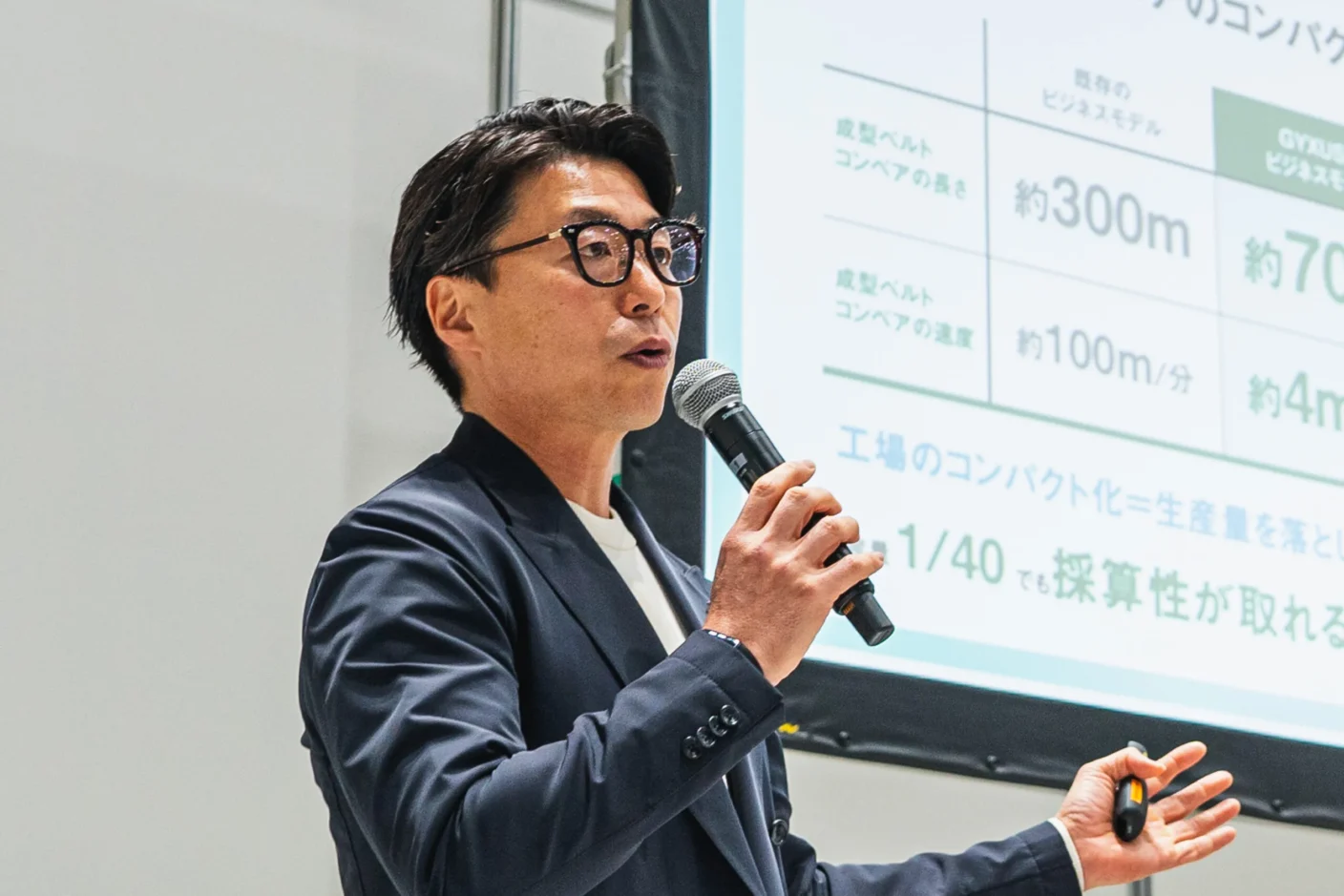- Sustainability in Large-Scale Conference Facilities
- Akasaka Intercity Conference: A Commitment to Sustainability
- 100% Renewable Energy Usage
- Sustainable Building Design and Energy Efficiency
- Recognized for Environmental Excellence
- Evolving Tenant Needs and the Shift to Sustainable Offices
- Ongoing Energy Conservation Efforts
Sustainability in Large-Scale Conference Facilities
As an international hub, Tokyo frequently hosts large academic conferences and global meetings attended by hundreds to thousands of participants. Given the growing emphasis on corporate social responsibility, event organizers are expected to incorporate sustainability into their conference operations. But what about the office buildings and conference facilities that host these events?
To explore sustainable initiatives in large-scale venues, we visited Akasaka Intercity Conference in Minato City, Tokyo, a state-of-the-art facility directly connected to Tokyo Metro’s Tameike-Sanno Station.
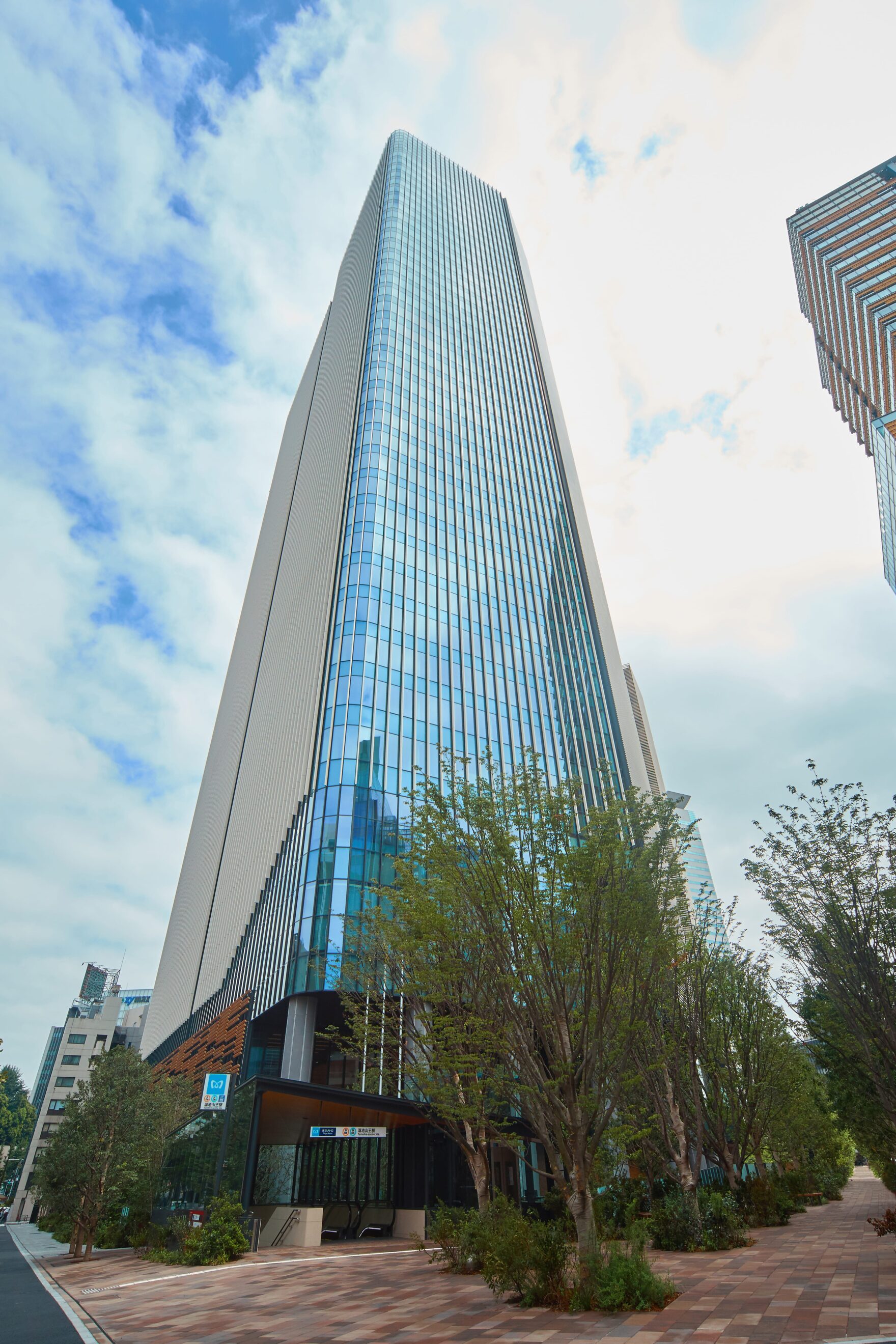
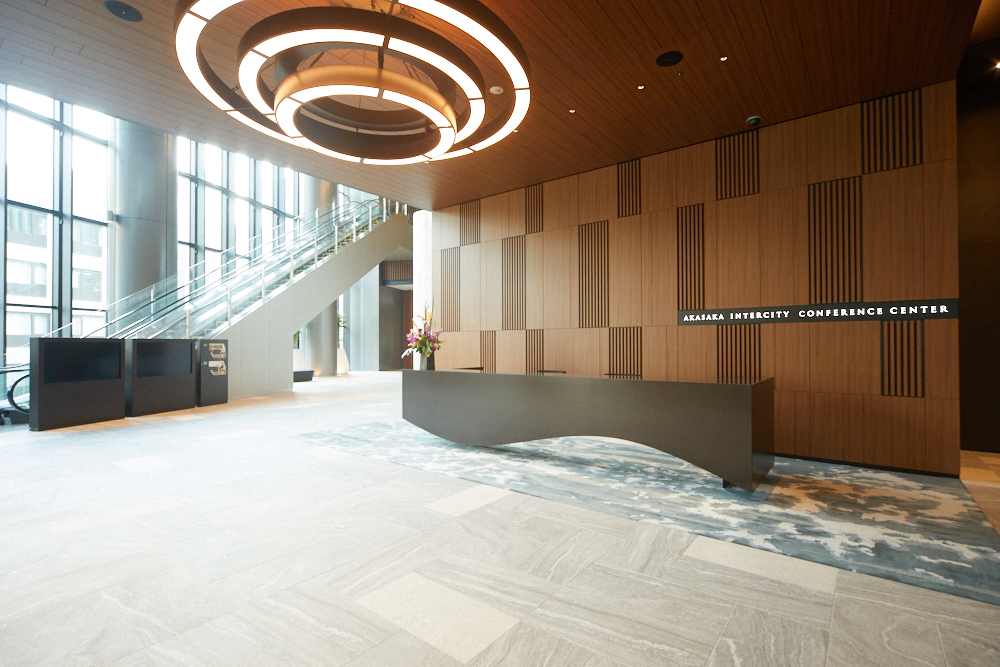
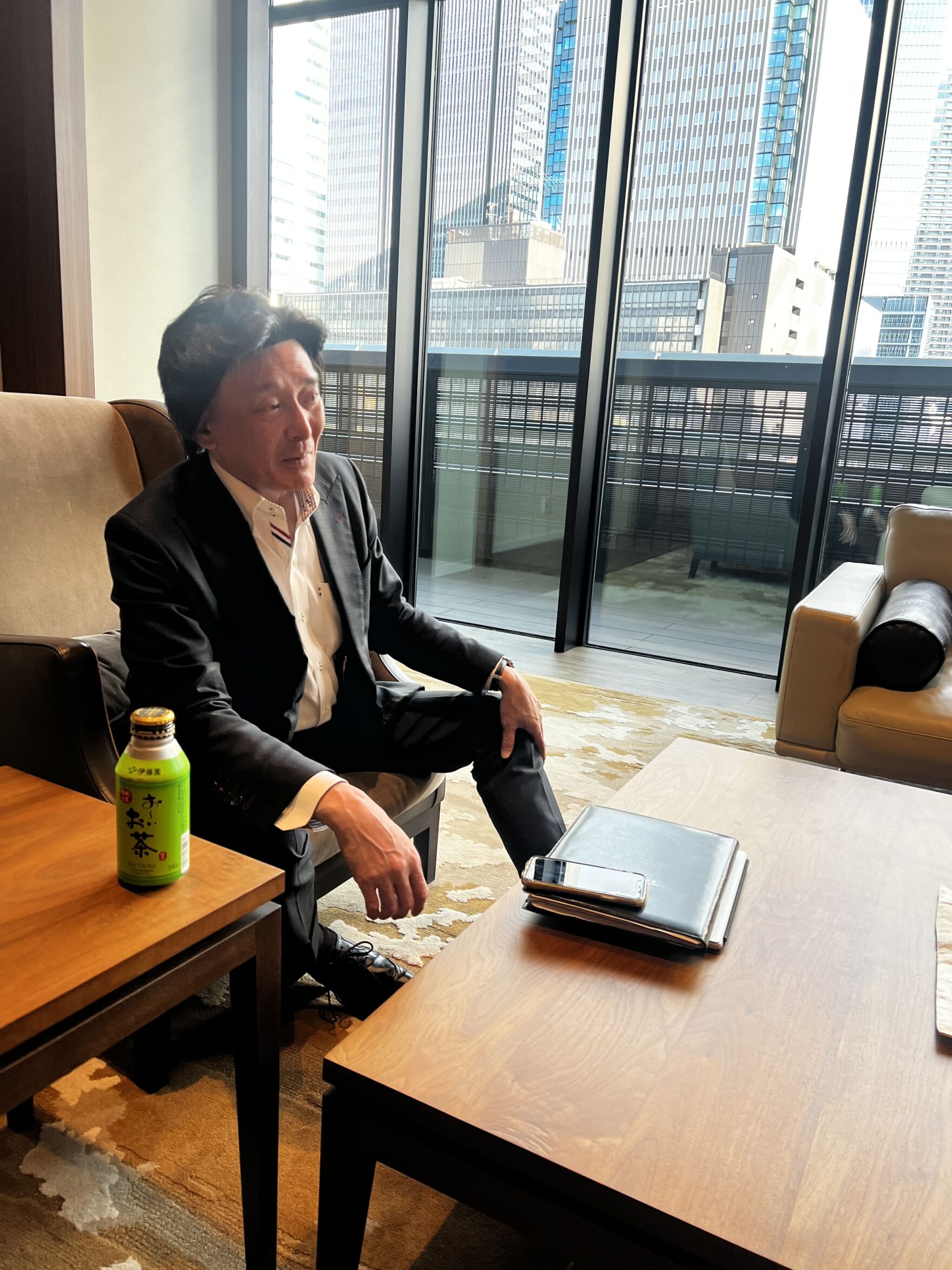
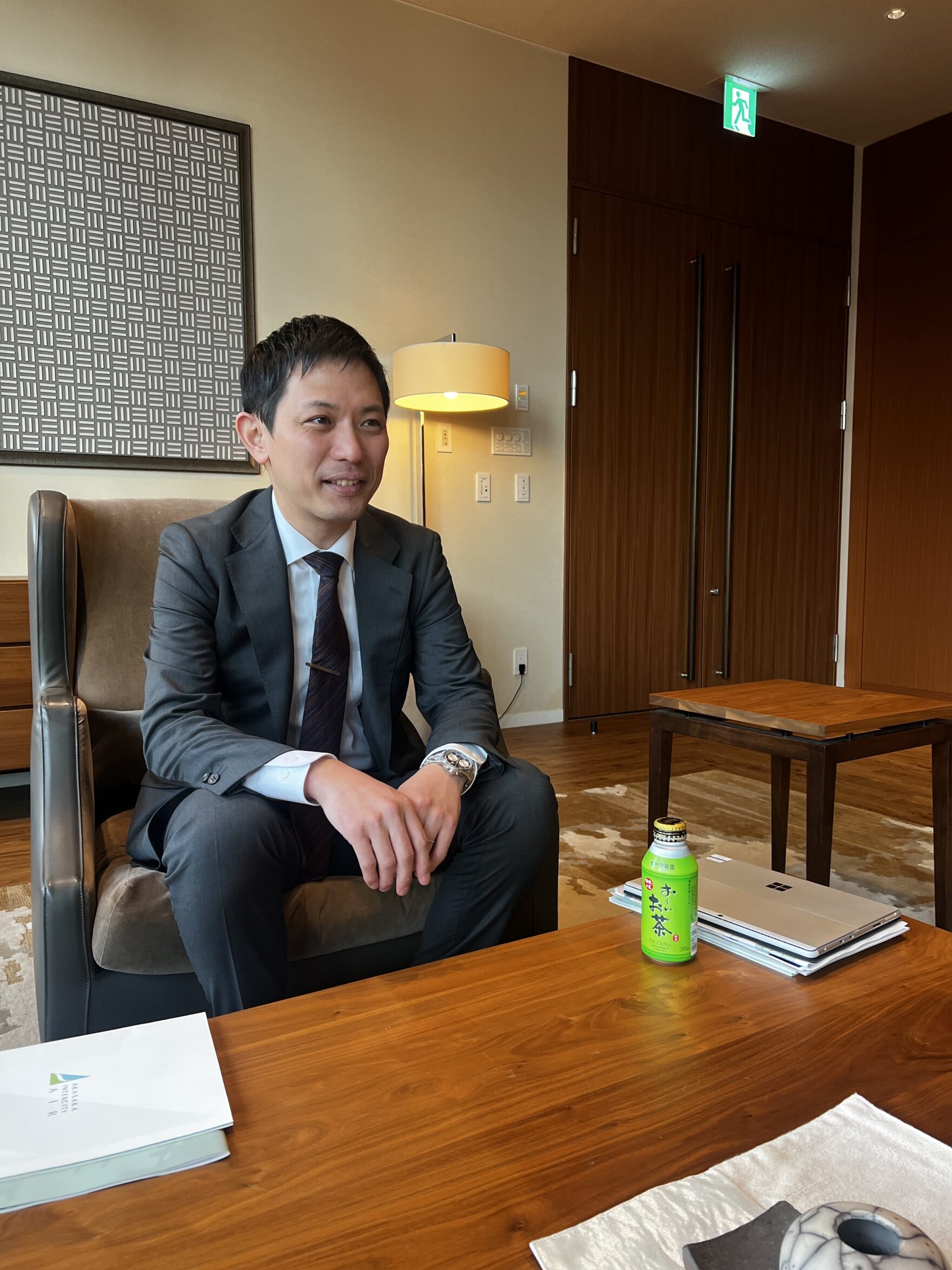
Nippon Steel Kowa Real Estate Group, Akasaka Intercity Management Co., Ltd.
Left: Takuya Shibasaki, Director of Housing Promotion and Facility Management
Right: Toshiyuki Okawara, Deputy General Manager of Facility Management and Building Operations
Akasaka Intercity Conference: A Commitment to Sustainability
Located within Akasaka Intercity AIR, a large office complex completed in 2017, Akasaka Intercity Conference integrates sustainability at multiple levels. We spoke with Takuya Shibasaki, Director of Housing Promotion and Facility Management at Nippon Steel Kowa Real Estate Group, and Toshiyuki Okawara, Deputy General Manager of Facility Management.
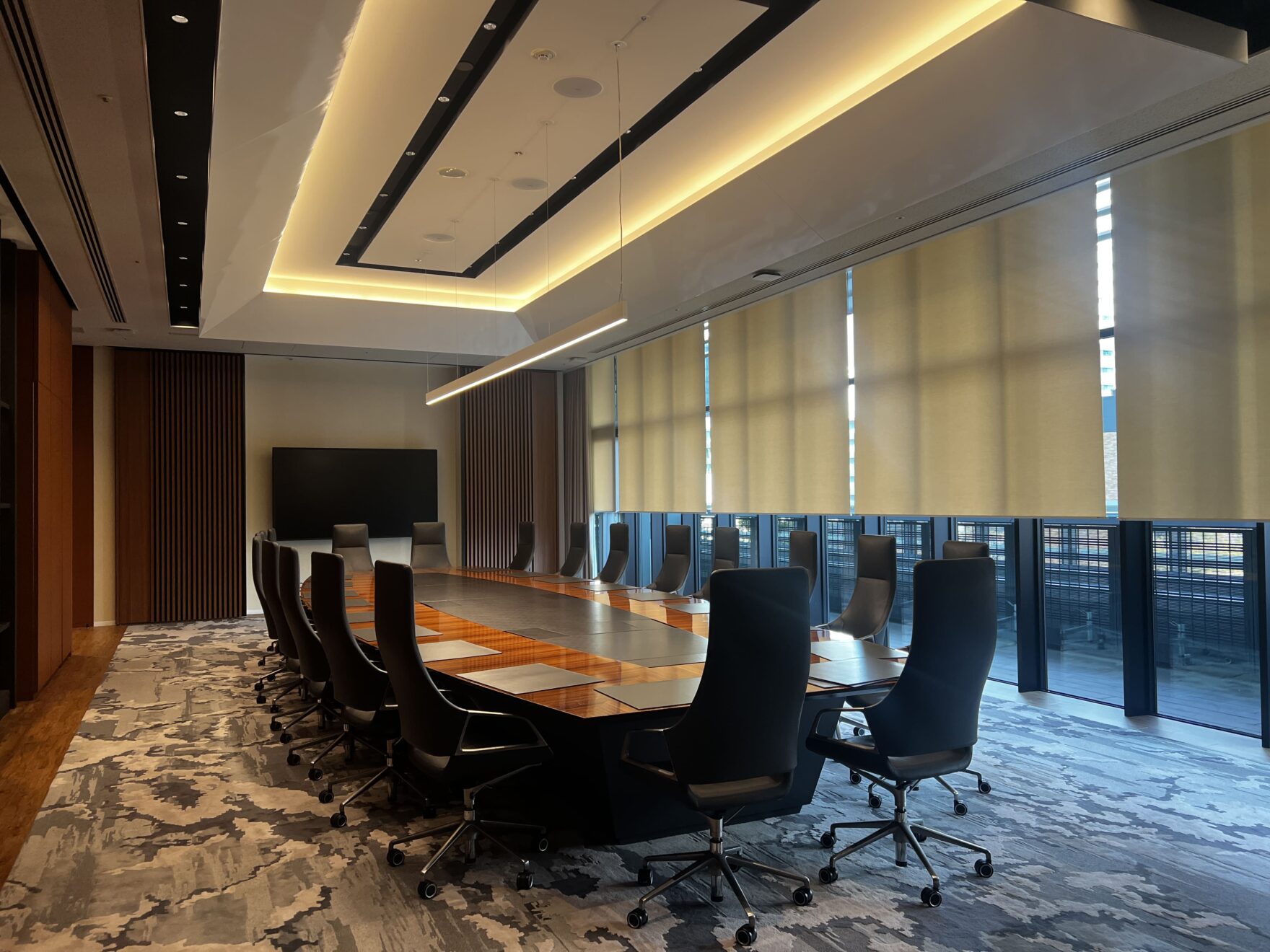
100% Renewable Energy Usage
Akasaka Intercity Conference aims to cut CO2 emissions by 50% by 2030 and achieve carbon neutrality by 2050. To support this goal, the facility transitioned to 100% renewable energy in April 2022 through TEPCO’s Green Basic Plan. While renewable energy incurs higher costs than traditional electricity, the investment aligns with the company’s environmental and social responsibility commitments.
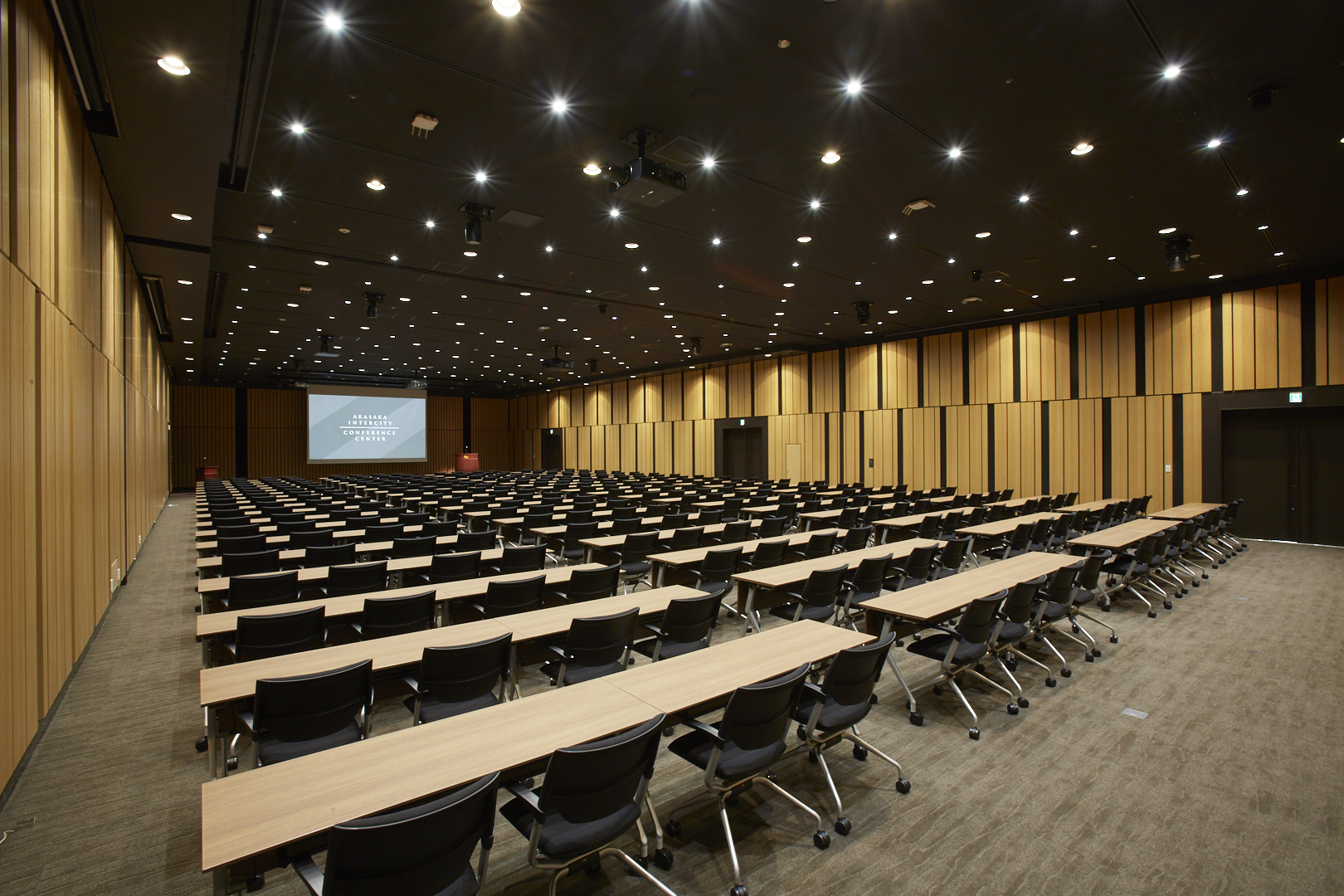
Sustainable Building Design and Energy Efficiency
Beyond renewable energy, the facility integrates eco-conscious design features:
- High-performance thermal insulation glass and aluminum louvers to reduce solar heat gain
- Natural ventilation systems to minimize reliance on air conditioning
- Smart tenant energy control systems that allow real-time energy monitoring and optimization
These measures not only enhance energy efficiency but also provide cost-saving benefits to tenants through a pay-as-you-use model for air conditioning and utilities.
Recognized for Environmental Excellence
Akasaka Intercity AIR has received multiple sustainability certifications:
- CASBEE (Comprehensive Assessment System for Built Environment Efficiency) S-Rank
- Tokyo Metropolitan Government’s Top-Level Business Certification
- Minister of Economy, Trade and Industry’s Energy Conservation Grand Prize (2020)
- DBJ Green Building Five-Star Certification
These accolades reinforce the facility’s commitment to eco-friendly operations.
Evolving Tenant Needs and the Shift to Sustainable Offices
Shibasaki notes a rising demand for environmentally friendly office spaces, particularly among multinational corporations and major enterprises. Companies now prioritize buildings with high environmental performance, and those that fail to meet sustainability criteria are often excluded from leasing considerations.
Additionally, tenant expectations have shifted from fixed rental costs to variable cost structures, prompting Akasaka Intercity Conference to implement energy usage monitoring and a flexible, consumption-based pricing system. This approach not only reduces waste but also delivers direct cost benefits to tenants.
Conference organizers are also increasingly requesting sustainable options. Recent initiatives at Akasaka Intercity Conference include:
- Reducing single-use plastics by replacing bottled water with canned alternatives and installing water dispensers
- Introducing reusable tableware to minimize waste, supported by the planned installation of dishwashers for reusability
One notable example was a sustainability-focused international conference, where the venue successfully met all of the organizers' eco-conscious requirements.
Ongoing Energy Conservation Efforts
The facility continuously refines its energy-saving measures through monthly operational improvement meetings led by an Energy Manager. Recent initiatives include:
- CO2 sensor-based ventilation control in parking areas
- Automated air conditioning and lighting adjustments based on conference room usage
These incremental improvements result in consistent cost savings and contribute to long-term sustainability goals.
Looking ahead, Akasaka Intercity Conference plans to enhance its environmental initiatives in collaboration with tenants and event organizers. Sustainable facility management requires collective participation, and the company aims to foster open dialogue to further reduce environmental impact.
By embracing green building practices and innovative energy management, Akasaka Intercity Conference sets a new standard for sustainable office and event spaces in Tokyo.
For more information, visit Akasaka Intercity Conference :https://aicc.tokyo/

